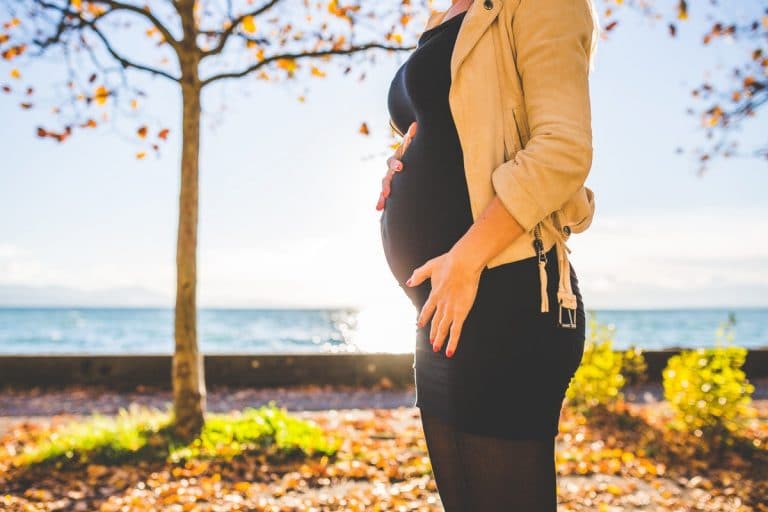Though pregnancy is the most beautiful thing a woman can experience, it does accompany many annoying health problems. These problems may not be dangerous but they are troublesome and may require some attention. In this blog, we will discuss these common problems in pregnancy so that when you face them, you would know there’s no need for an alarm.
Common Health Problems in Pregnancy
Just so you know, your body goes through hundreds of changes during pregnancy – hormonal, weight, metabolism, mind, mood, and immunity – all these can cause irritation or discomfort. While most of these changes may happen at different stages of pregnancy and are very common, if you ever feel discomfort beyond tolerance, you should consult your gynaecologist.
In This Article
Morning Sickness
Morning sickness is the most common symptom of pregnancy, which usually appears in the first trimester. It generally includes bouts of nausea and vomiting.
Some women continue to experience it in the second and third trimesters as well.
Common causes of morning sickness are increased estrogen levels, gastric problems due to an increased level of progesterone hormone, lack of vitamin B6 or other nutrient deficiency, and increased hCG levels.
Dietary changes and rest can help reduce the symptoms of morning sickness proactively.
Urinary Tract Infection (UTI)
During pregnancy, the fetus puts pressure on your urinary bladder and tract, which can trap the bacteria or cause incontinence.
Furthermore, due to ureteral dilation, resulting in the larger urinary tract and increased bladder volume, the urine can become more still and concentrated in the urethra.
This prompts bacteria to grow. You can cure UTI without antibiotics. Wearing cotton clothes, emptying the bladder more frequently, avoiding perfumes and deodorants, and keeping your body hydrated are few natural remedies for UTI.
Constipation
Constipation is another common and recurring problem during pregnancy, which does call for good attention and care.
Hormonal changes trigger constipation. Eating high fiber foods, adding pulses and legumes to your diet, exercising, and drinking enough water can prevent constipation. Sometimes, iron supplements can also cause irritable bowel. So, take iron supplements only if it is needed.
Muscle Cramps
Muscle cramps in legs, calves, and thighs are annoying side effects of pregnancy. It is very common in the night.
They are usually accompanied by swelling and varicose veins. Extra weight, metabolism changes, vitamin deficiency, and excessive exertion or sedentary lifestyle are some of the potential causes of cramps. Gentle exercising, leg-stretching or yoga, rubbing the affected muscles, and pulling your toes hard and upward are few natural remedies to treat cramps.
Back Ache
The ligaments in the back usually go soft during pregnancy to prepare you to stretch during labor. The soft ligaments can strain your joints, pelvis and lower back, causing you a backache. Backache grows stronger during the third trimester.
The extra weight is another reason for back pain. You can prevent backache by avoiding lifting heavy objects and standing or sitting for long periods, and bending your knee in a squat position to lift things, wearing flat, comfortable shoes, taking enough back support while sitting and sleeping, and using a firm mattress.
Skin and Hair Problems
Skin discoloring around the nape, underarms, stretch marks and inner thighs are common in pregnancy. So is hair fall, acne, dry and patchy skin. Hormonal changes and nutritional imbalance are the reason behind bad skin and hair during pregnancy.
Once the baby is born, skin problems will go away and hair fall will taper. Having a balanced diet with enough protein and fiber, and lots of fruits will help you manage the symptoms after delivery.
Excessive Fatigue
Headache and fatigue are again triggered by hormonal changes. They can also cause an increase in blood volume in your body. However, unexplained, frequent headaches during the third trimester could be a sign of something serious, such as eclampsia.
On the other hand, faintness, feeling hot, tiredness, sleep deprivation and exhaustion due to heavyweight in the lower tummy are common in the last 12 weeks. Resting, taking enough nutrition, keeping your mind happy, taking short naps in between, taking a bath, and drinking enough water can treat headaches and fatigue.
Varicose Veins
Varicose veins are an uncomfortable part of pregnancy. A vein doctor in Phoenix revealed that varicose veins develop when the one-way valves that help the blood flow back to heart do no work, causing the blood to accumulate in veins, affecting its walls.
Swelling, twisting, and bulging of veins are common symptoms. Excessive blood production, uterus’ pressure on the veins, and of course, hormones can develop varicose veins in legs. By staying active, not sitting for a prolonged period, avoiding high heels and wearing tight clothes can help you prevent developing varicose veins in legs.
Note that all of the above complications are common and temporary in pregnancy. They will go away after the baby is born. However, if you observe anything in excesses like continuous vomiting and weight loss, unbearable headache, short of breath and uneasiness, or anything that concerns you must be immediately notified to your doctor.











